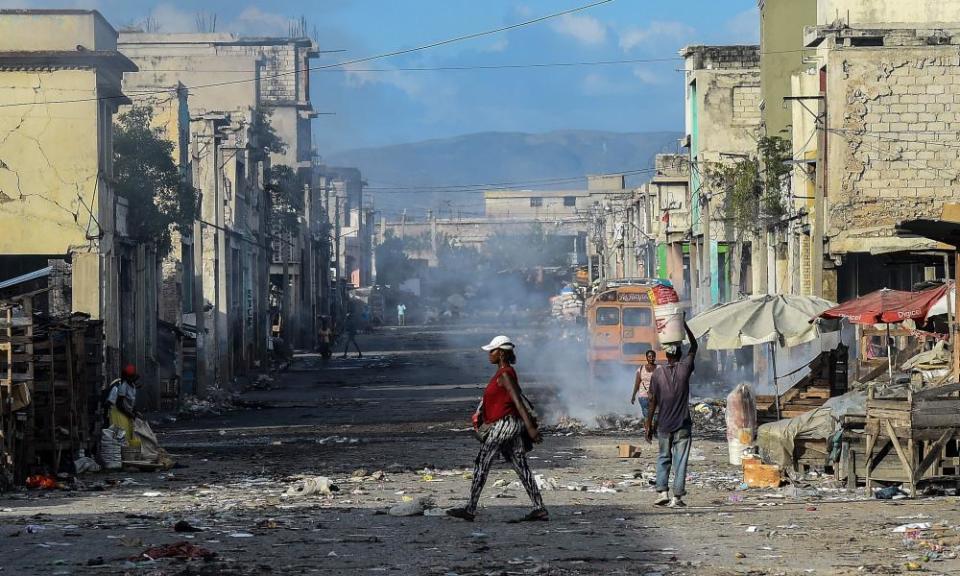Kidnap of foreign missionaries confirms the power held by gangs in Haiti

The kidnapping of 17 foreign missionaries in Haiti marks the latest escalation in a wave of criminality in the impoverished and politically fragile Caribbean state, which has long seen waves of gang-related crime coincide with heightened political turmoil.
According to some estimates, Haiti’s powerful gangs, numbering about 90 criminal organisations in total, control territory amounting to half of the sprawling capital of Port-au-Prince and cost the country over $4bn a year.
Often more heavily armed than Haiti’s hollowed-out police force, the country’s gangs have become more aggressive in recent years as they have become more powerful. Some have joined forces to create dangerous alliances, such as the G-9 and Family gang network in the capital formed under the aegis of notorious gang boss Jimmy “Barbecue” Chérizier.
First emerging as a serious threat after the “Baby Doc” Duvalier era in 1990s in poor slums like Port-au-Prince’s Cité Soleil during the ascendancy of President Jean-Bertrand Aristide and his Lavalas movement, over the intervening decades the gangs would be used by politicians and oligarchs as muscle for everything from straightforward criminal enterprise, including involvement in drug trafficking, to street protests and assassination.
The current reach of gangs in Haitian society was laid bare in a 2020 report by the National Human Rights Defence Network – Assassinations, Ambushes, Hostage-taking, Rape, Fires, Raids: The authorities in power have installed terror in Cité Soleil – that showed how in some of Haiti’s most disadvantaged neighbourhoods the criminal organisations had become conduits for assistance.
“Today,” said the report, “organisations led by armed bandits regularly receive from the private business sector as well as the authorities in power, exorbitant amounts or large amounts of equipment for interventions for the benefit of people in difficulty.
“This allows gang leaders to provide food for the most vulnerable, pay for the tuition of a few children, provide health care funds to some families, and so on.”
In recent years kidnapping has emerged as a crime of choice for many gangs, not least the 400 Mawozo gang – blamed for the missionaries’ seizure – which operates in the country’s east and which has recently turned kidnapping on the roads to an almost industrial scale.
With Haiti currently the world’s worst hotspot for kidnapping, it is an issue with an increasingly broad socio-economic impact with everyone from children, to poor street vendors, religious figures and businessmen targeted.
At least 328 kidnapping victims were reported to Haiti’s national police in the first eight months of 2021, compared with a total of 234 for all of 2020, according to a report issued last month by the United Nations Integrated Office in Haiti known as BINUH.
The scale of the increase in violent criminality in the last year was laid bare earlier this year in a report by the UN children’s agency Unicef, which estimated that “since the last trimester of 2020, 73 women and children in Haiti have been targeted by gang violence” an increase of 62% compared with the previous report from September 2020.
Unicef quoted the Haitian Brigade for the protection of minors (BPM), which disclosed that at least 31 children had been kidnapped between 2020 and 2021.

 Yahoo Finance
Yahoo Finance 